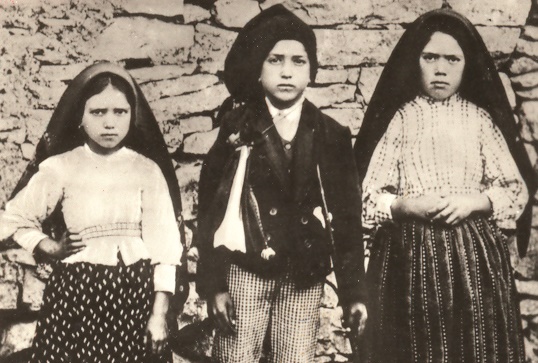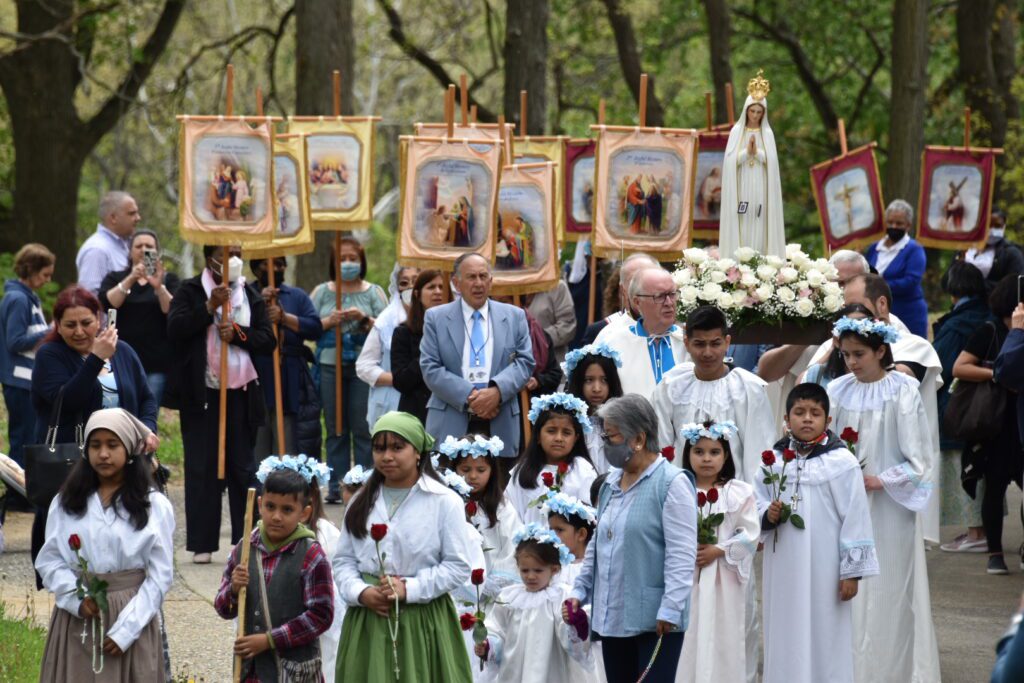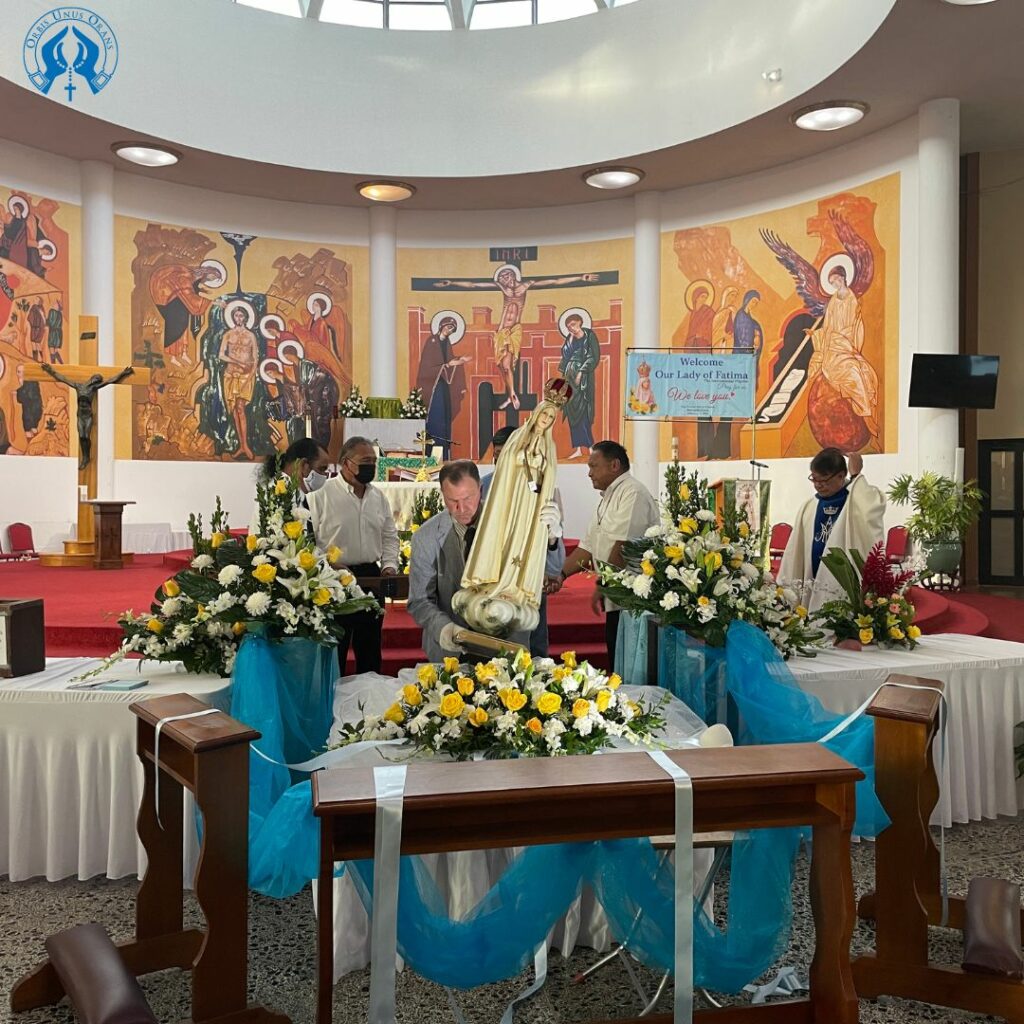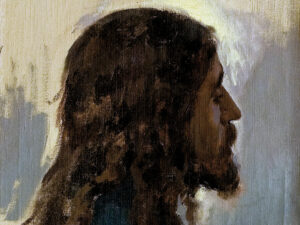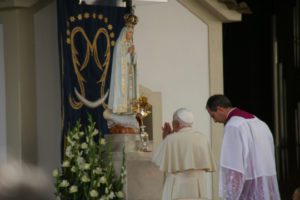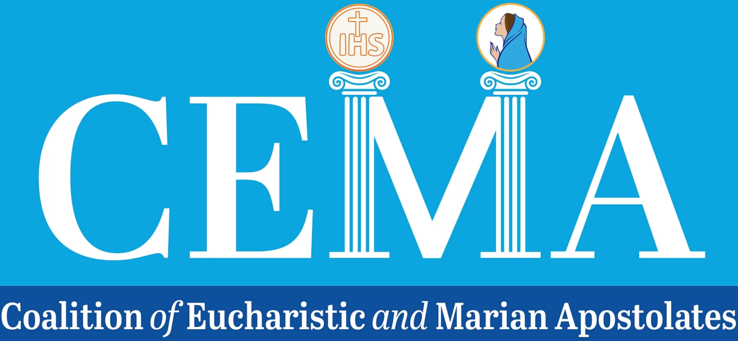by Catherine Moran, TOF, Ph.D.


At Fatima, Our Lady asked that we offer up our daily duty as the penance required of us. This sounds easy, but in reality, it is very difficult to do without the gift of the virtue of fortitude, one of the seven gifts of the Holy Spirit.
Fortitude is a supernatural virtue, which strengthens our resolve in the service of God against our own weakness, difficulties, dangers and trials we meet every day in the accomplishment of our daily duty. This gift of the Holy Spirit is the interior vigor and divine courage we need to rise above ourselves, making it easy to that which appears impossible.
Many times during the day, our ordinary strength is not sufficient when we encounter the sacrifices that our daily duty imposes upon us. Without this virtue, the weaknesses of our will paralyze the best resolutions we have. Scripture tells us how the Apostles went from frightened and timid souls to strong and faithful evangelizers of the gospel, after receiving the gifts of the Holy Spirit.
The gift of fortitude made great saints not only of the Apostles, but also the early Christian martyrs and down through our present age, including Sts. Jacinta and Francisco. With this gift our daily duty is done with a generous heart that is firm in its resolve to do all for the love of God, thereby making reparation for not only our sins, but for poor sinners who have no one to pray for them.
In a 1950s article in Soul Magazine, written by Rev. Dean Corcoran, O.F.M. CAP, he listed the opportunities that arise during our day that make up our daily duty. St. Therese the Little Flower eloquently told us that “Nothing is too small if God accepts it.” This applies to our offering of our daily duty. Nothing is insignificant to offer to God and this includes our physical, mental and spiritual pains. Rev. Corcoran offered some examples that we all can relate:
Physical sufferings can include: 1. The pains of operations, fractures or serious illness. 2. Small aches, cuts, bruises, common colds or other diseases. 3. The humiliations of deformities. 4. The inconvenience of nursing the sick or the sacrifice entailed in the patient teaching of the crippled, the deaf or the dumb. 5.The pain of inoculations. 6. The sacrifice of an incurable disease. 7. The loss of comforts, activity and freedom resulting from hospitalization, 8. The inconsiderate, slow attention of those nursing us. 9. Willingness to suffer when we are in good health.
The sufferings involving mental and spiritual are different. Mental suffering or distress arises from worry over temporal affairs, while spiritual sufferings come from interior conflicts which come from the soul.
Mental suffering can include: 1.The loss through death of a relative or friend. 2. Financial reverses or business slumps. 3. The tension of day-to-day uncertainty for those in precarious occupations. 4. The many chores that grate on the nerves of busy homemakers. 5. The study hours and exam tension of schoolchildren. 6. The disappointment of an earned vacation or needed night’s rest that failed to materialize. 7. The agony of enduring the forgetfulness or thoughtlessness of those about us. 8. The repressed anger when clerks are discourteous, or, for the clerks, when customers are impatient. 9. The little peeves of office life or the worry of keeping one’s job and supporting a family. 10. The loss of a treasured possession or a sum of money.
Spiritual sufferings can include: 1. Difficulty sleeping. 2. Feeling abandoned by God. 3. Questioning our beliefs. 4. Suppressing feelings of anger. 5. Accepting humiliations quietly. 6. Accepting misunderstandings of others. 7. Feelings of anger or hopelessness. 8. Aridity in your prayer life. 9. Doubts and suspicions from friends and family.
During all these times of offering up of our daily duty, whether physical, mental or spiritual, we have Mary as our role model and mother to turn to for help. She is the model of all suffering. We only have to look at her patient bearing of her seven sorrows to accept the small, insignificant sufferings in our daily duties. The three Fatima seers surely had the gift of fortitude and made of everything they could a sacrifice for the salvation of poor sinners. Let us pray for this gift so that we can do the same.
Catherine Moran is an author and speaker and serves as president of the Pittsburgh Byzantine Division of the World Apostolate of Fatima, as well as on the national board.


